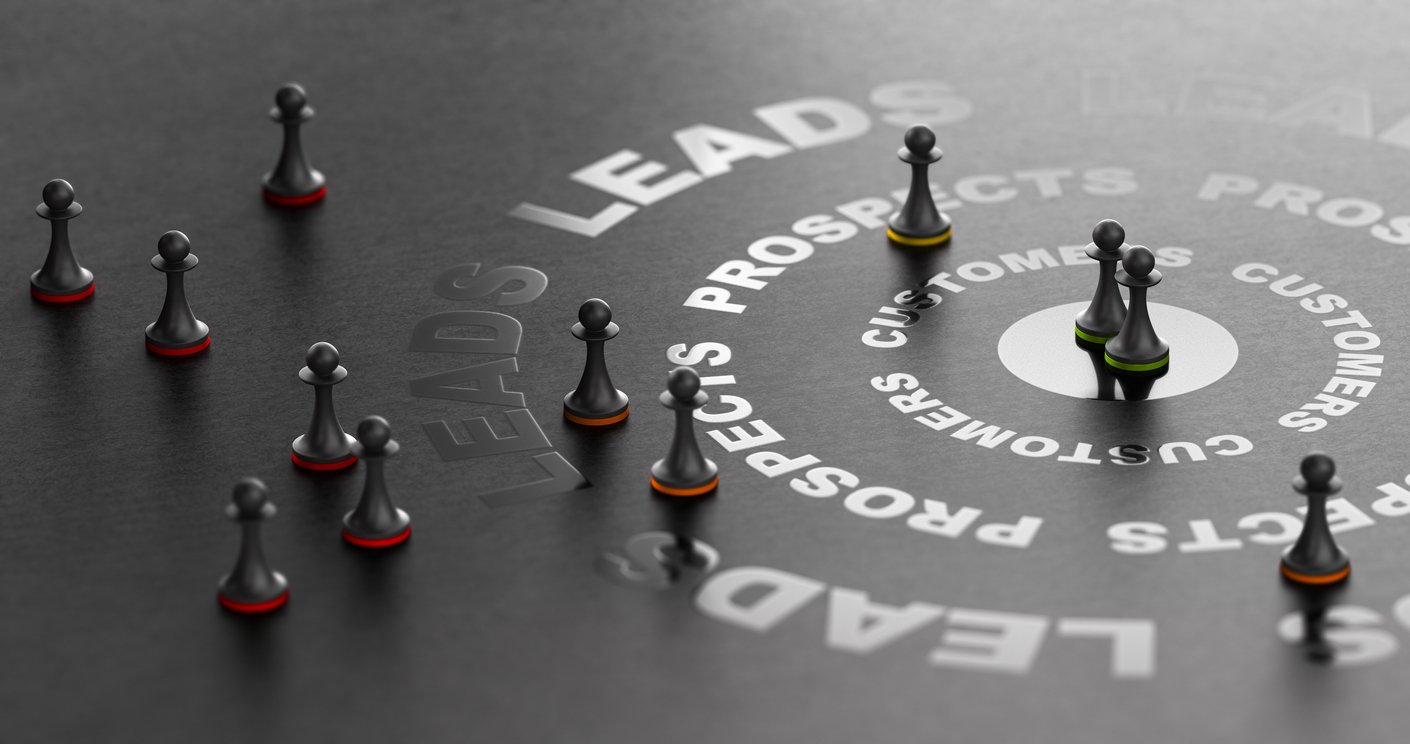B2B Sales Strategy Playbook - An Ultimate Guide for New Salespeople
A team is as good as its leader. Think of a soccer team; before they go into the field, they meet with their coach to discuss the strategy. They know whether they are playing a defensive or offensive game. They understand the other team and are aware of the tactics they are most likely to use. These kinds of game plans often take months to strategize, but they are integral to the game's success. The same is true for the business world. You can't expect your salespeople to convert prospects into clients if they don't have a strategic B2B sales plan. Yes, they have the relevant knowledge and experience but is their strategy customized to your unique business needs? Are the salespeople aware of your preferred sales practices? This is where a B2B sales strategy playbook comes into play.
We have compiled a comprehensive guide on how you can create a sales strategy game plan that's tailored to your business. It also covers the general steps you should take to organize your legacy knowledge, make it easy for new salespeople to absorb and practice sales skills, and revise the content over time.
What is a B2B Sales Strategy Playbook?
One of the major mistakes business owners make is adopting an 'anything goes' mindset when it comes to their sales team. While this might get you results, the team won't be optimally efficient. Remember that every salesperson has their preferred mode of closing deals, and sometimes, this may not align with your business objectives. The team also lacks unity since every member implements their preferred B2B sales strategy, which can cause organizational friction.
A B2B sales strategy playbook is more than a simple sale sheet. It's a guideline that helps your sales team tackle their biggest challenge; coming up with a new pitching angle every time they want to convert a new client. It contains all your sales processes and lays out your objectives in a clear manner. A B2B sales strategy playbook also includes a detailed description of who your ideal customers are, explains the roles and responsibilities of the sales team, and lists the main KPIs.
Think of it as a framework that helps your sales team achieve their optimal selling shape. Sales playbooks also enhance productivity among the team and reduce onboarding for new hires. Think of it as a road map for your B2B sales strategy.
When implemented right, a sales playbook ensures that none of the closed deals is random and that if any prospect doesn't convert, the salesperson can trace their steps back to the touchpoint where things went wrong. This is why it's shocking that almost 50% of the sales teams don't have a playbook.
Why Should You Create a Sales Playbook?
You're probably wondering, 'why should I care? I'm getting sales anyway!"
Well. Here's a statistic to start you off; according to Salesforce, companies that have a flexible and well-defined playbook perform 33% better than organizations that don't and have a win rate of more than 50%. This could be you!
Some of the main benefits of having a B2B sales strategy playbook include;
It allows your team to implement the most successful selling techniques.
Part of creating a B2B sales strategy playbook involves analyzing the strategies that are working and those that don't. If you identify an employee whose sales processes are almost always effective, you can make it part of your business's standard of operation by including it in the playbook.
It streamlines the onboarding process.
Training of new sales reps is often time-consuming and expensive. The onboarding process roughly takes 3 to 6 months, and this is by far the most critical time for your business. If you don't provide the new salesperson with enough training, they will be forced to learn on the job or shadow an experienced rep. The problem with this strategy is that if the other salesperson makes mistakes, the new hire will also copy them.
Leaves the sales personnel with more time to make sales.
A study revealed that salespeople spend a third of their time searching for the best content, another third working on administrative tasks. This means that only a third of their time is spent making actual sales. This is such a waste! A B2B sales strategy playbook contains the relevant resources your sales team will need, including the questions they should ask the prospects and ready-made messages. This frees up more time for selling.
It allows the sales and marketing departments to work collaboratively.
The line between sales and marketing is very thin, which is why most marketing teams and sales personnel are often at loggerheads. When you document the sales strategy processes, the roles and responsibilities of both teams become clear. This allows these two teams to work collaboratively towards common business objectives and revenue-generating activities.
Without a B2B sales strategy playbook, the sales team does twice the work and has a hard time measuring the results. Some mistakes also go undetected and end up hindering company growth and causing reputational damage.
What Should You Include in Your Sales Playbook?
Your B2B sales strategy playbook should be customized to your business needs. However, there are several common elements.
1. Company Info
Your custom processes should guide B2B sales strategy playbooks, so it's important to introduce your company to the new hires. Don't assume that they know everything about your business, so you should include basic information such as;
- Your mission and values: Who are you? What exactly do you do? What makes you different from other businesses? Make sure this is clear!
- Your sales strategy: Give the employees a comprehensive view of the big picture. Let them know the problems you seek to solve with your sales strategy and how they fit into it.
- Organizational chart: Some of the friction among employees stems from not knowing who they should report to. Include an organizational structure that helps the new salespeople understand the chain of command and how each role contributes to the game plan.
- Training process: The training schedule should be clear and precise. The new sales personnel should know exactly what is expected of them from the first day, the available resources, and how long the onboarding process will take.
- Roles and responsibilities: Each person on the sales team should have clear and defined roles and responsibilities. This includes how the quota targets are determined, expectations, and how you measure performance.
Make sure this section is detailed, as this will help you set up the strategic expectations from the word go and help the salespeople start off on the right foot.
2. An Overview of Your Products and Pricing
The foundation of a good B2B sales strategy is extensive knowledge of your business products and services. If your salespeople meet clients and end up fumbling or can't satisfactorily answer questions related to your business, you'll lose potential sales.
Make sure this section comprehensively covers areas such as;
- The products and services that you offer.
- What they do and how they work.
- The challenges they solve for your customers.
- Why your customers buy from you and not your competitors.
- How much each product sells for.
- Different packages, if any.
If you have varying pricing strategies, e.g., month-to-month contracts, quarterly contracts, annually, etc., make sure this is also included.
3. Compensation Packages
This is one of the most important elements of a B2B sales strategy playbook yet one of the most overlooked. Compensation is a motivation factor, and letting your sales team know exactly how much they will be earning can help increase their productivity.
Salary-based employees often know how much they'll be earning, but most sales positions are usually based on a base salary and a commission structure which is usually complex. Make sure your compensation structure is well detailed and transparent. This will save the employees a lot of confusion and tension along the way.
4. Sales Methodologies
Define your sales methodology as this informs how your sales team will approach the sales process. This section should include your sales principles and the best practices to give the new hires a clear picture of your expectations.
Think of it as a road map that helps the sales team navigate the sales process based on your buyers' needs and the company goals. For instance, do you use The Challenger Sales Model, SPIN, Solution Selling, or Consultative Selling? Is there a mix of sales strategies that you prefer to use when closing deals? How do these strategies align with your overall business goals?
Don't leave room for doubts! This section should be so clear that when the salesperson starts prospecting, they know exactly what they need to do.
5. Sales Processes
The sales process is the most important part of your playbook. It equips your sales team with everything they require to be triumphant at every touchpoint, including the prospecting stage, lead qualification & nurturing, and finally closing the sale. For this segment, you have to map out all the sales activities and include what is happening on the buyer's end. The end goal is to give the salespeople a clear picture of what they should do or say at every sales funnel stage.
For instance, the sales reps should first generate leads and conduct extensive research on the buyers before making contact. When it's finally time to make contact, communication processes should be defined, e.g., cold calling, email marketing, social media selling, etc. They should then move on to the lead qualification stage, where they segment prospects based on whether they're cold or hot leads. Make sure you also include how the reps should effectively handle objections, e.g., actively listening to the prospect, acknowledging their concerns are valid, asking follow-up questions, etc.
Your sales processes will guide your employees through the various touchpoints, increasing their chances of closing the deal.
6. Ideal Customers
Who exactly will they be selling to? This goes beyond defining the types of businesses that they'll be prospecting. You need to provide an in-depth review of your target audience by creating detailed buyer personas. It should include aspects such as;
- Company size
- Industry type
- Geographic location
- Details about the decision-makers, including their job title and their role in the purchasing process
- Solution requirements
- Pain points
- Goals
Buyer personas help your sales team understand your customers intimately, making it easy for them to answer any questions the clients may have. They also help the reps to target qualified leads, anticipate their needs, and overcome objections.
It's important to note that the personas should be representations of your actual customers and not fictional characters. This means that you'll have several buyer personas to cater to your different audience segments.
For instance, a mid-level marketing manager will likely start the research process while the CMO will be involved in the evaluation process. In such a scenario, you have to create 2 different buyer persona because the needs and the buying process of the marketing manager and the CMO is different.
7. Sales Plays and Introduction of the Available Sales Tools
Sales plays turn simple strategies into action by walking your salespeople through proven actions that will help them close deals. They typically cover areas such as qualifying leads, closing deals, and developing the right rhythm for their work.
If you have a stack of sales tech tools, including CRMs and project management apps, you should show the new hires how to use them. While most salespeople have general knowledge of these tools, don't assume that they know how to navigate the ones you use.
8. The Key Performance Indicators
These are the metrics that you'd like the team to mainly focus on. This section should also focus on your expectations and how you'll measure the team's performance. Some of the KPIs you should focus on including the average deal size, time to close, number of generated qualified leads, etc.
9. Messaging
This is the part of the B2B sales playbook strategy where you show your new hires what they're supposed to say to clients. We recommend that you include scripts related to your brand value proposition. The messaging section should also contain elements such as elevator pitch, how to handle objections and the appropriate responses, discovery questions, positioning guides, etc.
10. General Recommendations
This section should highlight how the salespeople are supposed to manage their day. For instance, how much time should they spend on follow-up calls? What percentage of their day should they use on prospecting? It should act as a template for new hires to help them get started with their day. It should also allow them to experiment with various strategies included in the playbook so that they can find the one that works best for them.
In a nutshell, your B2B sales strategy playbook should;
- Use your business sales process to define the buyer journey.
- Comprehensively define your ideal customers being buyer personas.
- Map your sales plays to your sales processes and buyer persona.
- Highlight the entire customer engagement process, including the touchpoints.
- Package the sales content in a way that your salespeople can implement as they make sales pitches.
Step-by-Step Guide to Creating a Winning B2B Sales Strategy Playbook
There are 3 main steps of creating the best B2B sales strategy playbook:
1. Assemble the Right Team Members
Creating a sales playbook is a team effort, so you need to create a task force. This team should include players such as;
- Sales leaders: Seeing as you want to create a playbook for the sales team, it's important that their voice be heard. They are also best suited to recommend the best sales processes and methodologies based on their experience. Make sure you also include the top performers to get insights into their tactics.
- Marketing team: Sales and marketing teams should work collaboratively to achieve organizational goals. Marketing teams are the best people to go to when you need buyer personas and content creation. Collaborate with them to create the perfect messaging and effective branding guidelines for all your products.
- Technical experts: The effectiveness of the sales department impacts your entire business, so get at least one subject-matter expert from all the departments. For instance, the IT team could help with the ideal sales tools while the customer care department could help them with the follow-up processes.
2. Audit Your Existing Processes
You don't have to start creating your sales playbook from scratch. This is not only time-consuming but is also expensive. Analyze your current processes to identify what's working and what isn't. Interview your sales team to find out which strategies are helping them close leads and to identify the areas with the most inefficiencies.
Take time to learn how your team sells before abolishing your entire process.
3. Create a Template for Your Playbook
There are a lot of elements that need to be included in a B2B sales strategy playbook, and without a template, you may end up neglecting important information. Use the elements we've discussed above to create a template which you'll then fill out with the relevant information.
Upgrade Your B2B Sales Training Using an Effective Playbook Guide!
Using a sales playbook to create a B2B sales training program is one of the most underrated B2B sales tips, yet one of the most effective. Start by identifying the most important elements for your organization, gather the right task force, and then audit and analyze your current sales processes. Once you have a complete picture of how you'd like your sales teams to operate, you should create a playbook template and customize it to your organizational needs.
If you're having a hard time creating a winning B2B sales strategy playbook, we recommend that you join a Sales Training Program specifically designed for B2B companies like the Deal Flow Accelerator. This will not only help you scale up your business but also streamline your sales operations and drive organizational growth. You can also contact us for more information!
You May Also Like
These Related Articles

B2B Sales Strategy Framework for Sales Growth

B2B Sales Storytelling: A Guide to Sales Growth Using Stories






